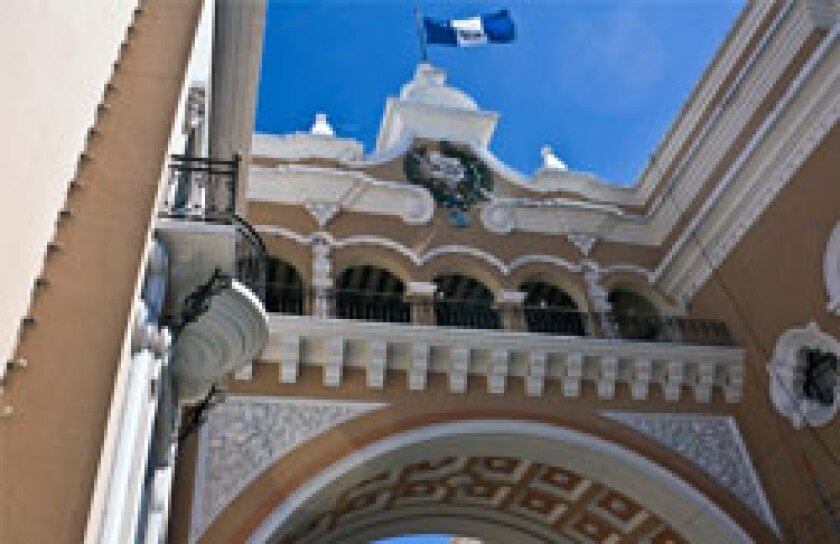The Republic of Guatemala is working towards becoming a regular issuer in international capital markets, the sovereign’s finance ministry told EuroWeek after a 15 year issue that was seemingly immune to a wider sell-off in Latin American credit.
Bankers close to the deal said the scarcity value of a sovereign issue offering a 5% yield was particularly attractive to debt investors, as Guatemala (Ba1/BB/BB+) was able to increase the size of its 15 year note from a planned $500 million to $700 million after attracting a book of more than $3.5 billion via HSBC.
And there was still upside for investors. After pricing at 98.692 with a coupon of 4.875% to yield 5%, the deal was bid at 99.5 last Thursday afternoon, said bankers.
"A lot of the recent deals — both high yield and good quality — have been trading down, but this has bucked the trend," said one EM banker. "They capped the deal at $700 million, which meant allocations were pretty rough, so there was a natural built-up demand."
Maria Castro, vice minister at Guatemala’s ministry of finance, told EuroWeek that, having begun work on the bond in 2012, Guatemala was ready to issue on Thursday January 31. But volatility in US Treasuries persuaded the borrower to postpone the launch until last Wednesday, February 6.
"We were very satisfied with the bond," said Castro. "The finance ministry has set itself the task of improving the profile of Guatemala’s public debt in order to lower the interest rate we pay. In turn, that saves public money that can be spent on important resources.”
"Part of this has been to take advantage of the very good conditions that Latin American issuers have experienced in the international bond markets."
‘GOOD BALANCE’
The country’s last international issue was a $700 million 10 year bond that re-opened the Latin American market after a period of Europe-inspired turmoil in May, but that had been the republic’s first deal since 2004. Guatemala actually pays 0.875% more for its 10 year bonds than what it will pay for its 15 year notes.
"We have gradually been aiming towards becoming regular issuers in the debt markets," added Castro. "Before last year, Guatemala had only issued three or four international bonds, and at times when interest rates were much higher. Another reason to issue in dollars is to control exchange rate risk, and at the moment we have struck a good balance.” Increasing the sovereign’s curve with benchmark issues also lays down markers for private companies in Guatemala that could want to issue, and is a way of differentiating itself from the rest of Central America, according to the vice minister.
"Investors should now be able to see that just because there is negative news in another part of the region, it should not affect Guatemala. International investors are now appreciating the good management of public finances in Guatemala."
A low level of sovereign issuance in Latin America this year, a lack of Latin American sovereigns offering 5% yields, and the infrequency of Guatemala’s outings into the market helped the deal perform, according to the banker.
"The book turned out to contain very high quality accounts, and the scarcity value was the key," he said.
Paraguay and Bolivia, two other infrequent sovereign issuers from the region and both rated Ba3/BB-/BB-, lower than Guatemala, have tapped the market in recent months. Paraguay paid 4.625% for its debut 10 year deal in January this year, while Bolivia paid 4.875% for decade-long paper in October 2012.
To read this story in full, subscribe to Euroweek.com
